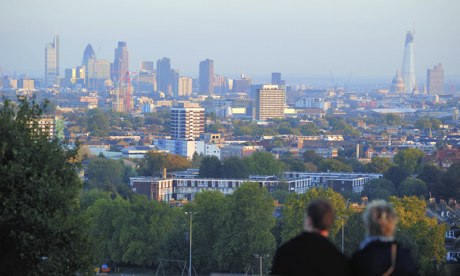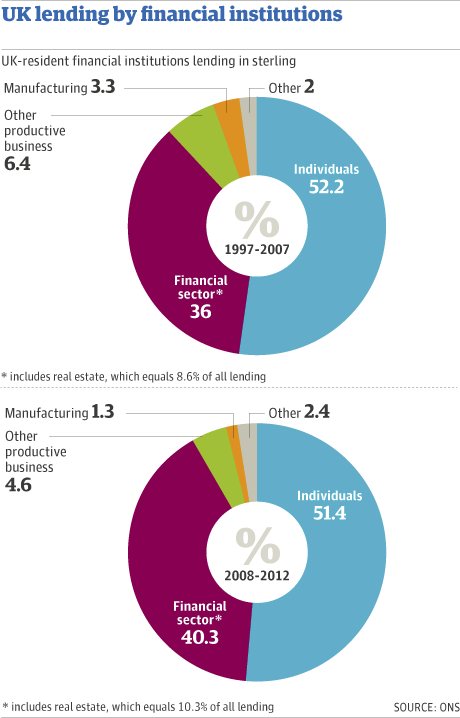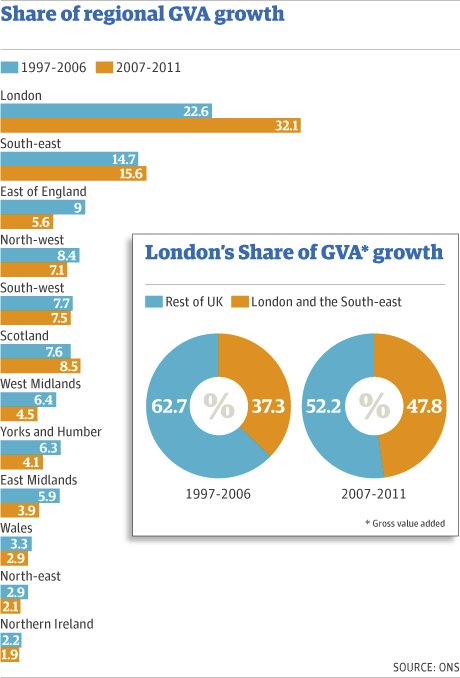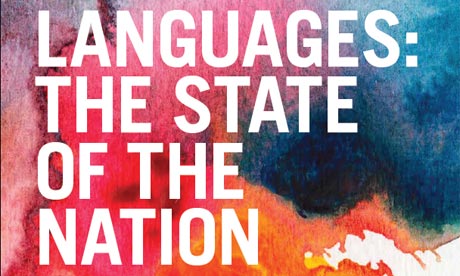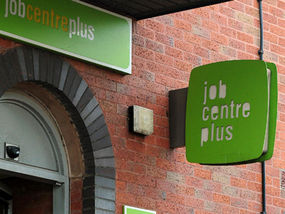—Su carné de identidad queda retenido, señora.
—¿Por qué? ¿Qué pasa?
—Pesa sobre usted una orden de expulsión. Debe abandonar Bélgica en
un máximo de 30 días. En caso contrario, podría ser detenida y conducida
hasta la frontera.
El teléfono de Dolores Cañizal amaga con cortar su voz en cualquier
momento. Dos años después de llegar a Bélgica en búsqueda de trabajo,
está a punto de cruzar la frontera franco-belga de vuelta a España, de
vuelta a la casa de sus hijos de la que salió “para no dar más guerra”.
No retorna voluntariamente: en diciembre recibió una orden de expulsión
por, según le dijeron en la escueta conversación que mantuvo con un
funcionario belga de migraciones, abusar del sistema de la seguridad
social. Como ella, casi 5.000 europeos —entre ellos 291 españoles—
fueron expulsados del país en 2013, en virtud de la interpretación que
el Ejecutivo belga hace de la directiva —por ser una “carga excesiva”—
que regula el
libre movimiento de personas en la UE.
A sus 66 años, esta castellana llevaba más de dos décadas viviendo en
Marbella hasta que el paro le empujó a Bélgica en marzo de 2012. “Fue
una mezcla de orgullo personal y ganas de quitar una carga a mis hijos”,
apunta, con tono nervioso. No puede contener su desilusión y rabia.
Llegó a Bruselas por la insistencia de un amigo que vivía allí y que le
proporcionó alojamiento los primeros meses. No tardó mucho en encontrar
trabajo en el décimo país con menos paro de la UE: pocos días después de
lograr su carné de identidad —un documento imprescindible para trabajar
legalmente en Bélgica—, firmó un contrato como asistenta de limpieza
por horas en casas y oficinas. Al principio, la barrera idiomática fue
un lastre, pero a medida que transcurrían las semanas la carga de
trabajo y los ingresos crecieron. “Confiaban en mí”, relata al otro lado
del teléfono, “aunque empezaba a estar mayor para un trabajo tan
físico”. Una lesión en la espalda y las generosas condiciones que ofrece
el —aparentemente— garantista sistema belga, acabaron por adelantar su
jubilación. “Me dijeron que cobraría 981 euros mensuales, lo suficiente
para poder vivir”, añade. “Nunca se me pasó por la cabeza el calvario
que viví poco después”. Su intención no era jubilarse, pero la Seguridad
Social le propuso esta fórmula —a pesar de que llevaba poco más de un
año cotizado— y se acogió a ella.
El Estado busca amedrentar a quien recibe la carta”, dice Carlos G., que reclama su derecho a quedarse
Tras un año cobrando la pensión puntualmente, dejó de recibir la
prestación que le correspondía en noviembre pasado. “Pensé que sería un
error y no le di más importancia”. Sin embargo, dos días después recibió
en el buzón la orden de deportación. La carta, con el membrete del
Ministerio del Interior belga, le emplazaba a presentarse en las
oficinas administrativas de Evere —uno de los 19 Ayuntamientos en los
que se divide Bruselas—, de clase media, en la que residía, a unos 10
kilómetros al norte de la Grand Place. “No sabía por qué querían que
fuera y cuando llegué, casi sin dirigirme la palabra, un funcionario me
retiró la tarjeta de residencia”, el documento que permite a cualquier
extranjero —sea o no comunitario— residir en el país un máximo de cinco
años. “Cuando me dijeron que tenía que abandonar el país en un plazo
máximo de 30 días no me lo podía creer, justo cuando empezaba a salir
adelante”, añade emocionada. “Nunca había pedido una ayuda a los
servicios sociales; ni me aproveché de las arcas públicas”.
Aquel día empezó un auténtico vía crucis para Dolores: sus ahorros
apenas le permitían abonar las facturas, perdió la fianza del
apartamento que acababa de alquilar, tuvo que hacer cábalas para comprar
el billete de vuelta y regalar las pertenencias que no podía llevar en
el equipaje de vuelta. “Ni siquiera me ha dado tiempo a venderlos”,
desliza resignada.
El derecho comunitario permite a cualquier ciudadano europeo
permanecer hasta tres meses en otro país de la UE con su DNI como único
equipaje. A partir de ese momento, el permiso de residencia está
condicionado a que la persona tenga un contrato de trabajo; disponga de
un seguro médico y de recursos económicos suficientes para vivir sin
necesidad de recurrir a ayudas sociales; esté estudiando en alguna
institución educativa del país o sea familiar de primer grado de alguna
persona que cumpla los anteriores requisitos. Si no cumple con al menos
uno de estos condicionantes, la legislación europea deja la puerta
abierta a una expulsión, pero la limita a “circunstancias
excepcionales”.
Lo que dice la directiva
Así reza el punto 16 de la directiva de 2004: “Los beneficiarios del
derecho de residencia no podrán ser expulsados mientras no se conviertan
en una carga excesiva para la asistencia social del Estado de acogida.
(...) Conviene que el Estado examine si tal recurso obedece a
dificultades temporales y que tenga en cuenta la duración de la
residencia, las circunstancias personales y la cuantía de la ayuda
concedida antes de poder decidir si el beneficiario se ha convertido en
una carga excesiva para su asistencia social y si procede su expulsión”.
13 de los 28 países de la UE —entre ellos, la propia Bélgica,
Alemania, Francia, Italia, Austria e Irlanda— practican expulsiones
selectivas de inmigrantes comunitarios amparándose en la “carga
excesiva” que suponen para sus arcas.
4.812 europeos —291 españoles— fueron expulsados de Bélgica en 2013, más del doble que un año antes.
El último en sumarse a esta interpretación de la legislación comunitaria ha sido
el Gobierno alemán, que el miércoles anunció su intención de acabar con la “inmigración de la pobreza” imitando el efectista esquema belga.
La Comisión Europea ha ratificado la legalidad de las medidas belgas y
alemanas y ha admitido “problemas puntuales” en algunos Estados
miembros.
Sin embargo, el margen de maniobra que el texto otorga a cada país
produce situaciones como la de Bélgica. Iván Salazar, responsable de
ayuda social de la asociación Hispano-Belga que, como su propio nombre
indica, tiende puentes entre España, Latinoamérica y Bélgica, lo tiene
claro: “Las expulsiones de españoles se han multiplicado en los últimos
meses”. Al principio, dice, les chocaba que tantas personas acudieran a
la asociación con el mismo problema. “No sabíamos de qué hablaban cuando
decían que les habían expulsado”, añade con tono pausado. “Pero con el
paso del tiempo empezaron a llegar más y más casos”. La gran mayoría de
ellos decide, como Cañizal, regresar a España.
Apenas seis kilómetros al este de la Hispano-Belga, vive Carlos G. y
su pareja belga, Eliane Istace. Este catalán tuvo que echar el cierre en
2009 a las dos empresas que regentaba en Barcelona: un restaurante y
una compañía de servicios de limpieza. El paro ya arreciaba y, de un día
para otro, se vio en la tesitura de tener que emigrar. Probó suerte en
Holanda, donde vivían unos conocidos, pero el idioma le obligó a buscar
otros lares. “No duré ni un mes”, rememora. Acabó en Bruselas, a donde
llegó con “poco dinero”. Como Cañizal, Carlos se hospedó las primeras
semanas en casa de unos amigos mientras estudiaba francés: casi ocho
horas diarias, con una ayuda social de 380 euros. “Es un país
solidario”, apunta mientras apura un último trago de vino rosado. Acaba
de cumplir 50 años y mantiene una actitud jovial: únicamente el pelo
cano delata su edad.
Cuando su francés empezaba a ser lo suficientemente bueno, Carlos se
acogió al artículo 60 —una fórmula que ofrece a los desempleados un
salario a cambio de trabajar en ayuda social— y firmó un contrato en una
residencia de ancianos de Etterbeek, el barrio en el que vive. “Todo
iba bien: conocí a mi pareja, ganaba lo suficiente para vivir... Hasta
que recibí la orden de expulsión”.
De verbo fácil, maneja bien la intrincada terminología jurídica que
rodea su caso —estudió tres años de Derecho— y se explica en un frañol
que da fe de su total adaptación a la sociedad belga. Clava sus ojos en
los papeles mientras se apagan los últimos rayos de sol del primer día
de primavera en Bruselas. Su mirada denota rabia. “Voy a luchar porque
es un sinsentido: es como si te ayudaran para luego echarte”. De
momento, Carlos está centrado en ganar la batalla en los tribunales, que
en abril resolverán su recurso, en el que ha llegado a renunciar
explícitamente al seguro de desempleo. “No quiero más ayudas, solo que
me dejen trabajar aquí, en mi entorno”. Por si su apelación no
prosperara, Carlos aún guarda una bala en la recámara: que el Estado
belga acepte su cohabitación con su pareja. Espera que la situación no
se alargue mucho en el tiempo —“cumplo todos los requisitos y creo que
ha sido un error administrativo; si no, no me lo explico”—, pero
advierte de la frágil situación en la que se encuentran otros
expulsados. “El Estado busca amedrentar a quien recibe la carta y que,
presa del pánico, abandone Bélgica voluntariamente”.
En España no tuvimos problemas de racismo, y aquí, es institucional”, dice L.B., español de origen magrebí
Ese es el caso de L. B., su mujer y tres de sus cuatro hijos, que
prefieren permanecer en el anonimato por miedo a represalias. Tras 26
años trabajando en Mallorca, este marroquí de Tánger se vio abocado a
emigrar a Bélgica en 2011 para trabajar en la construcción, “como
autónomo y sin la más mínima medida de seguridad”. Se explica en un
castellano gramaticalmente perfecto y enseña su pasaporte español con
orgullo: todos sus hijos han nacido en Baleares. La decisión de
marcharse a Bruselas no fue fácil y se hizo aún más cuesta arriba cuando
ya en Bélgica, solo dos meses después de empezar a cobrar una ayuda
social de 600 euros “por la escolarización de los niños”, recibió la
temida orden de expulsión. Desde entonces, apenas logra conciliar el
sueño temiendo que les expulsen “en cualquier momento” del diminuto piso
en el que viven, en el céntrico y multicultural Saint-Gilles. “Me han
dicho que la policía puede presentarse en cualquier momento para
ponernos en la calle”. Ha pasado casi un año desde que recibió el aviso
de que debía abandonar Bélgica y el temor sigue latente.
“Solo espero que la situación mejore en España y que podamos volver”.
Por lo pronto, su hijo mayor, de 18 años y sobre el que también pesa
una orden de expulsión, ya se ha asegurado un puesto como repartidor de
butano en su Mallorca natal durante los meses de julio y agosto.
Mientras, estudia junto a sus hermanos pequeños en un colegio público
del barrio. “Es importante que aprenda idiomas: habla español, árabe y
francés, y ahora ha empezado con el neerlandés”, afirma L. B. Su gesto
se tuerce al ser preguntado por la integración, uno de los puntos que la
UE considera clave para frenar la expulsión. “Nos hemos sentido muy mal
tratados en Bélgica, en España nunca tuvimos problemas de racismo y
aquí, en cambio, el racismo es institucional”. Su rabia es tal que le
lleva a preguntarse por los verdaderos valores europeos. “Somos
españoles, somos europeos y no podemos vivir en Europa. ¿En qué consiste
entonces la UE?”.


